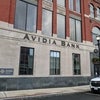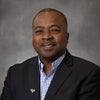Envisioning A Tech Park
The commercial landscape urban planners dream of: Employees shuttle to and from their offices and their cars, carpool with fellow workers, walk or bike to nearby stores and restaurants, or simply stroll around an attractive campus with ample sidewalks and footpaths.
The reality: Stifling congestion and traffic-light backups during commuting hours and lunch times; lanes crammed with vehicles carrying just one person each; dangerous conditions for hardy-souled pedestrians.
Welcome to the Framingham Tech Park and the 990 Corporate Center, two developments that straddle either side of Route 9.
And while the situation at those sites might seem hopeless to commuters, initial steps are being taken to transform the reality into the dream.
Late last year, the Metropolitan Area Planning Council (MAPC) embarked on an extensive, months-long study of the area, which houses some of MetroWest's largest companies and has one of its greatest concentrations of employees.
Officials want to foster the inevitable growth of both the tech park and corporate center by developing opportunities to improve access and ease traffic, and, on a larger scope, encourage sustainable reuse of buildings.
“It's definitely a huge trip generator and employment center,” said MAPC transportation engineer and planner Sarah Kurpiel, who is leading the a study of how to improve the tech park area. “Traffic is definitely an issue. Getting to this site is a problem.”
And getting to the solutions will take time. Kurpiel expects the regional planning agency will release a report later this year. She said the goal is to provide a “varied set of options that we hope will change attitudes about transportation on the site,” which will ultimately lead to a plan of action.
A portion of a $4-million grant from the U.S. Department of Housing and Urban Development is paying for the study. Awarded in 2010, the money is intended to assist the planning agency — which covers 101 cities and towns — in implementing its long-term “MetroFuture” plan for Metro Boston.
Developed in 2008, that 30-year plan encompasses 65 goals related to transportation, housing, the environment and other factors to “create a sustainable, equitable, and economically-competitive Boston region,” the MetroFuture website says. The tech park area study is part of that effort.
Metrics Of A Tech Park
To start, MAPC is collecting data on existing development plans, zoning, infrastructure, and transportation and transit options, and will soon perform an employee survey, according to Kurpiel. The nonprofit Urban Land Institute is also providing technical assistance — helping to develop land-use recommendations for the two sites. Consultants from the institute were in Framingham this month meeting with representatives from the major employers as well as local officials, Kurpiel said. Those consultants will issue their own recommendations on the project for Kurpiel and her team to consider.
The planning agency is also working with the MetroWest Regional Transit Authority, the MetroWest/495 Transportation Management Association, and the Massachusetts Department of Transportation, as well as a tech park area advisory committee made up of representatives from Framingham, Southborough and Ashland, as well as businesses, such as Bose, Genzyme and Staples, that call the tech park and corporate center home.
Ultimately, the two sites contain a few dozen businesses with about 8,000 workers between them, according to Kurpiel. The largest employers are Staples, with 3,000, and Bose, with 2,500. Five other businesses — Genzyme, CA Technologies, Cumberland Farms, the MetroWest Daily News, Nestle Waters North America and the Sheraton Framingham hotel — have a combined 2,310 employees.
No Stopping The Growth
Congestion or not, there seems to be plenty of interest in the two sites.
The Congress Group, a real estate investment company, has secured permits for a 350,000-square-foot office building with a 1,250-spot garage along Pennsylvania Avenue. And Genzyme's master plan calls for a potential expansion to more than 5,000 employees, according to MAPC's study.
Growth is great, but “there is a limit to the amount of cars you can put on the site,” said Bruce Leish, director of the MetroWest Regional Collaborative, a local advocate and think tank. The ultimate goal is to “allow the tech park to continue to grow and flourish and essentially create additional tax revenue for Framingham.”
In trying to achieve that, MAPC is studying factors such as how people are accessing the park, how that access can be improved, the extent to which workers rely on commuter rail and local buses; how transit, private shuttles, biking and walking could be increased and promoted, how tech park growth could affect transportation, and whether roadways could handle increased traffic.
Most notably, the agency is also working with businesses to survey employees on what would motivate them to change their commuting habits and what alternative forms of access they would be comfortable using.
According to information the MAPC has culled so far, the majority of workers at the two sites come from Framingham and the immediate surrounding communities, including Natick, Ashland, Hopkinton, Milford, Westborough, Northborough, Marlborough, Shrewsbury, Hudson and Franklin. And data show that on average, 84 percent of trips from those areas are workers driving alone, though three bus routes serve the area and the commuter rail passes nearby with stops in Framingham, Southborough and Ashland. One challenge MAPC is that the area is not very walkable. Many roads in the vicinity have no sidewalks, and the few that do are only on one side of the street. The ultimate goal is for people, once they get to work, to not have to get in their car again for the rest of day, said MAPC regional planner Barry Keppard. Ways to make that happen could range from creating sidewalks or bike lanes to establishing a sort of shuttle service between the site and commuter rail and bus stations.
It's about “allowing growth to flourish without it being strangled by more and more traffic,” Keppard said.
Leish said the ideal solution would be finding a way for employees to (safely) walk and bike in and around the developments, down to and along Route 9, and across that busy road by having more strategically timed light cycles. In fact, Leish said, there are some overgrown pedestrian pathways and trails there already that people aren't aware of.
“You have to look at the land use outside the site to understand how it's all going to fit together,” he said.
At this point, it's hard to tell just how the companies in the tech park and corporate center (or the town, for that matter) feel about the effort. Though some may be sharing their thoughts with the planners, Staples, Bose, Genzyme, and Cumberland Farms declined to comment for this story.
Similarly, Framingham's planning director, John Grande, as well as its community and economic development director, Alison Steinfeld, did not respond.
Others, though, say any improvements will be a boon to the area.
All told, the tech park is a “tremendous asset,” said Maureen Dunne, a professor at Framingham State University and researcher with the college's MetroWest Economic Research Center (MERC). “It's a critical piece in transforming our region into leading-edge economy.”
She noted the “several reinventions” the park has undergone over the years, from the devastating recession from 1987 to 1993 — when Framingham lost 25 percent of its jobs with massive closures of big companies — to the 1990s, when it was revived after MERC did its first-ever report on the MetroWest labor force.
As it grows now, some congestion is the price you pay, Dunne said. She stressed that traffic issues should be addressed.
Regional Challenge
Eric Denoncourt, town planner in neighboring Southborough, said the two sites are not just a Framingham issue. Traffic backs up into Southborough, as well, at intersections and lights along Routes 9 and 30, as well as streets that feed into them.
“My hope is they will come up with some innovative alternatives to be able to get people in there more efficiently,” Denoncourt said.
The two sites may have their challenges to overcome, but Kurpiel sees a broader challenge for properties such as these, one that may be more of a struggle to overcome.
“The problem is not just at the tech park or the corporate center,” she said. “It's trying to get people overall to stop driving alone to work, provide them with alternative commuting options, (and) introduce them to carpooling.”
And though there has been growth at the two sites, Leish, of the collaborative, is baffled that nearby parcels are vacant or underutilized.
“Why are these businesses out of business on Route 9?” he asked.
He thinks there's an opportunity for potential “service businesses” for the tech park and corporate center.
“If people could only walk to them from the tech park or 990 [Corporate Center], there's a ready-made market, essentially,” he said. n
Read more











0 Comments